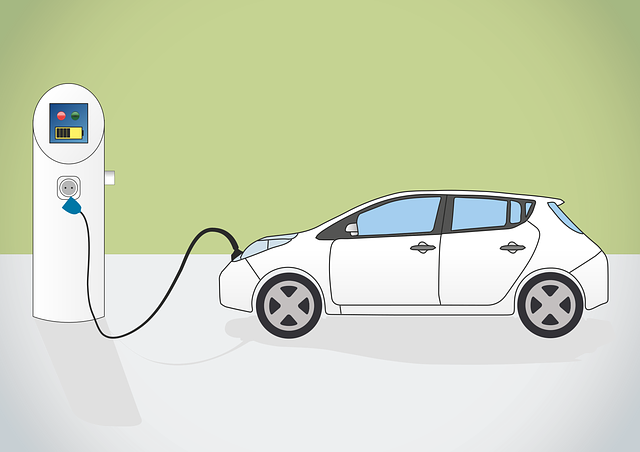Understanding when to replace your car battery is essential for maintaining vehicle performance and avoiding breakdowns. Batteries typically last 3-5 years, but age, maintenance, and external factors affect their lifespan. Signs of an aging battery include starting issues and dim dashboard lights. To maximize battery life, practice good cleaning and corrosion control, monitor for leaks or swelling, and regularly check charge levels. Replacing a car battery involves considering labor costs (approximately $40-$100/hour) and choosing between premium or standard batteries (averaging $100 to $250). Additional expenses include diagnostic tests and package deals. Budgeting is crucial; estimate costs based on vehicle make, research prices online, and compare auto repair shop quotes. After replacement, proper maintenance, including regular inspections and optimal charging, extends battery lifespan.
Planning to replace your car battery? Understanding typical expenses is crucial before you embark on this task. This comprehensive guide breaks down the costs associated with replacing a car battery, from the price of a new battery to installation fees and potential labor charges. We’ll explore factors influencing price variations and offer budgeting tips for a smooth process. Plus, learn about post-replacement considerations for longevity and maintenance. Remember that knowing what to expect financially can help you navigate this essential maintenance step.
- Understanding When to Replace Your Car Battery
- Uncovering the Cost of New Battery Installation
- Exploring Additional Expenses: Labor and Testing
- Factors Influencing Price Variations
- Budgeting Tips for a Smooth Replacement Process
- Longevity and Maintenance: Post-Replacement Considerations
Understanding When to Replace Your Car Battery

Knowing when to replace your car battery is crucial for maintaining optimal vehicle performance and avoiding unexpected breakdowns. While a car battery typically lasts between 3-5 years, several factors can influence its lifespan. One of the primary indicators is the age of the battery; as it ages, its capacity to hold a charge diminishes. If you’ve noticed that your car struggles to start or exhibits dimmed dashboard lights, these could be signs of an aging battery.
Regular maintenance can also extend the life of your car battery. This includes ensuring proper cleaning and corrosion-free connections at the battery terminals. Moreover, paying attention to any leaks or swelling around the battery case is essential. If left unaddressed, these issues can lead to a failing battery. Regularly checking the battery’s state of charge, especially after extreme weather conditions, can help predict and prevent unexpected failures.
Uncovering the Cost of New Battery Installation

When considering a replace car battery operation, understanding the cost of new battery installation is paramount. The price can vary significantly based on several factors such as the make and model of your vehicle, the type of battery chosen (e.g., lead-acid, lithium), and whether you opt for a premium or standard option. On average, expect to pay anywhere from $100 to $250 for this service, not including the cost of the new battery itself.
Workshops often charge labor fees that cover the time and expertise required to safely remove the old battery, install the new one, and test its functionality. These fees can vary, but they typically range from $40 to $100 per hour. Some shops might offer package deals or discounts for multiple services, so be sure to inquire about potential savings during your visit.
Exploring Additional Expenses: Labor and Testing

When considering a car battery replacement, it’s important to understand that there are additional expenses beyond just purchasing a new battery. Two significant costs to factor in are labor and testing. Labor fees vary greatly depending on your location, the make and model of your vehicle, and even the shop you choose. Some shops may charge by the hour, while others have set rates for specific services. Testing is another crucial step in the replacement process. Mechanics will often perform diagnostic tests to ensure the new battery is compatible with your car’s electrical system and that no other components are causing issues. These tests can add up, so it’s wise to inquire about potential costs beforehand.
Additionally, some shops may offer comprehensive packages that include battery installation, old battery disposal, and basic system checks. While these packages can be convenient, they might also come with higher price tags. It pays to shop around and get quotes from different auto repair facilities to find the best deal for your specific needs when it comes to replacing your car’s battery.
Factors Influencing Price Variations

When considering a replace car battery cost, several factors come into play that can significantly influence the price. First and foremost, the type of vehicle you own plays a crucial role—older cars or those with more complex electrical systems may require specialized batteries, driving up costs compared to newer models. Additionally, battery size and capacity vary between vehicles, and higher-capacity batteries tend to be pricier. Another critical factor is brand and quality; premium brands often command higher prices due to their advanced technology and longer lifespans.
Furthermore, the cost of labor should not be overlooked when budgeting for a replace car battery service. Factors such as the shop’s location, their pricing structure, and whether they offer additional services can all contribute to price variations. Some shops may also charge different rates depending on the time of day or week you choose for your appointment. Therefore, it’s advisable to get quotes from multiple auto repair facilities to ensure you’re getting a fair price for both parts and labor.
Budgeting Tips for a Smooth Replacement Process

When planning a car battery replacement, budgeting is key for a smooth process. First, estimate the cost of a new battery based on your vehicle’s make and model; prices vary widely. Online research can provide valuable insights into average replacement costs for your specific car. Secondly, factor in additional expenses like labor fees, which can significantly impact the overall cost. To save money, consider timing the replacement with routine maintenance or check if your warranty covers it.
To keep expenses manageable, set a realistic budget and stick to it. Compare prices from different auto repair shops to find the best deal without compromising quality. Additionally, keep an eye out for promotions or discounts on battery replacements. Remember, being prepared financially ensures a less stressful experience when replacing your car’s battery.
Longevity and Maintenance: Post-Replacement Considerations

After successfully replacing your car’s battery, it’s essential to understand that proper maintenance and care can significantly extend its lifespan. Regularly checking the battery for any signs of corrosion or leaks is crucial. Corrosion build-up on the terminals can hinder optimal power transfer, so cleaning them periodically with a mixture of baking soda and water can help maintain battery performance. Additionally, keeping the battery charged at an optimal level (between 12.6 and 12.8 volts for most cars) ensures it remains in top condition.
Proper storage is another post-replacement consideration. If you’re not using your vehicle for extended periods, consider investing in a smart battery charger to maintain the battery’s charge. Extreme temperatures can degrade a battery quickly, so if you live in regions with harsh winters or summers, taking measures to protect your battery from these conditions will be beneficial in the long run.
When considering a replacement car battery, understanding the typical expenses involved is crucial. From initial cost of the new battery to installation labor and testing fees, each factor plays a part in the overall price. By being aware of these variables and budgeting accordingly, you can ensure a smooth replacement process without unexpected financial hurdles. Remember, proper maintenance and timely replacement are key to keeping your car’s electrical system running smoothly.
